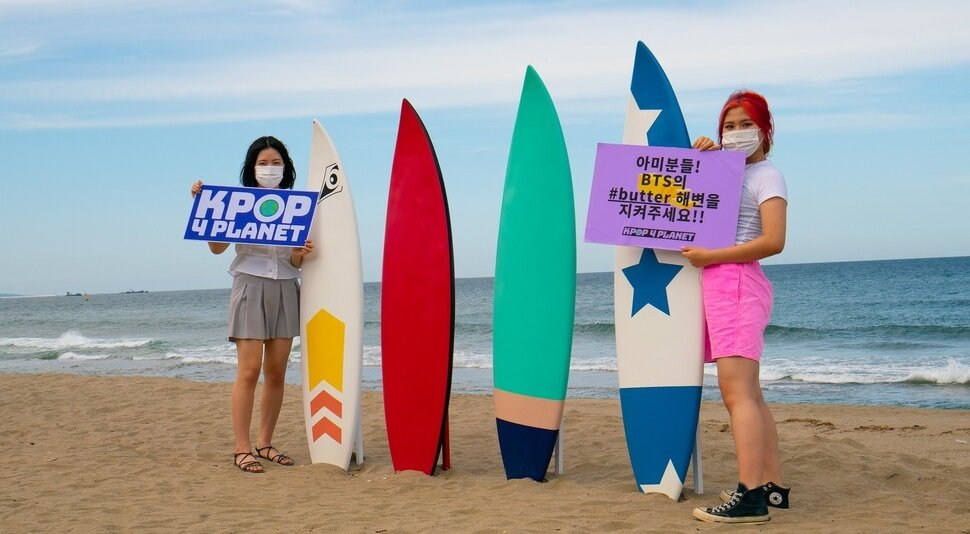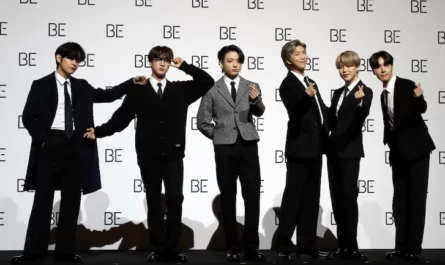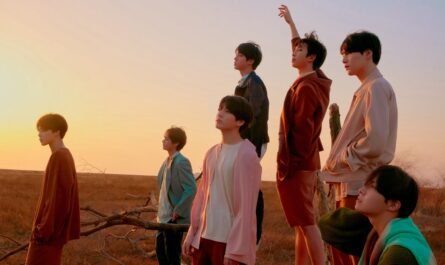Generation MZ is taking the lead in responding to the global climate crisis. Future generations want a life where they can enjoy the arts and culture, such as K-pop and ‘Hand’ (Korean drama), and the survival of the earth and mankind.
There are attempts in the entertainment industry to respond to this trend and seek change. introduces movements across the entertainment industry on their journey to respond to the climate crisis.
From last year to this year, ‘climate change has emerged as one of the keywords of K-pop. In March last year, K-pop fans gathered to create a climate action platform, K-Pop for Planet. They put up the slogan ‘There is no K-pop on a dead earth’ and demanded climate action from entertainment agencies.
In the same year, Blackpink was appointed as the ambassador for the UN Climate Change Convention (COP26) and the Sustainable Development Goals (SDGs). As a result, BTS participated in the UN Sustainable Development Goals high-level meeting to mention climate change. This means that K-pop stars and fandom communities have emerged as a powerful channel to respond to the climate crisis.
The K-pop industry, where young people and future generations are the primary consumers, has also taken action.
The Korea Music Content Association (from now on referred to as the Mukono Association), which represents the rights and interests of the industry, took the lead by announcing that it would create a new ‘eco-friendly (clean) chart’ that prioritizes the environment in the popularity of popular music. Mcon Association is an incorporated association with major domestic entertainment agencies and music distributors such as Hive, SM, YG, and JYP as members. On the 19th, I met Choi Kwang-ho, Secretary General of the Mkon Association, at the office of the Mkon Association in Bangbae-dong, Seoul.
When and why did you come to recognize the connection between K-pop and climate change?
“From last year, voices calling for an improvement in the K-pop industry about climate change, led by some K-pop fans, have grown. In March, ‘K-Pop for Planet’ was created, and as Blackpink and BTS released global messages about climate change, the K-pop industry has become more aware of it.
However, this problem is difficult for individual member companies (affiliated with the association) to deal with individually, and responding to climate change is a problem that the entire pop music industry should be concerned with, not just a specific agency, so the association started thinking about it from the beginning of this year. That’s it.”
In February of this year, on the YouTube channel operated by Mcon Cooperative, while dealing with fan backlash related to Hive’s entry into the non-fungible token (NFT) business, Mcon Cooperative is considering a new ‘eco-friendly (clean) chart’ for the first time. You made it public (Reference: At the end of last year, when Hive, the agency of BTS, announced that it would change physical photocards, etc., to NFTs, some of the fan club ‘Army’ said, “The consideration of carbon emissions of non-fungible tokens is insufficient. They are taking steps that are inconsistent with the message.”
“yes. An artist publicly appeals for climate change response, but if the agency’s management goes in a way that goes against him, the fans will feel the difference and have no choice but to demand improvement. Most people in the industry agree with the principle claim that we need to respond to climate change, and we want to respond to the demands of our fans.
Each entertainment agency started to release eco-friendly material albums and goods as part of that effort. Since MCON is running the chart business simultaneously, it could be possible to lead such eco-friendly efforts further by changing the chart policy.
What was the reaction of the industry?
“Each company has come up with a number of creative products, but there is no common ‘standard’ for eco-friendly albums and goods. It is difficult for a few companies to lead such guidelines. So, the members were generally welcoming.
From the standpoint of individual companies, when they release an eco-friendly album without CDs, I am also curious about how it will be reflected in the charts. From the album planning stage, we get inquiries from the Mcon Association asking, “Will it be reflected in the circle chart even if I make it this way?” Even after announcing the plan to create a clean chart, we get a lot of inquiries about it.”
In July, at the vision declaration ceremony for the Mkon Association, it was announced that the development of an ‘eco-friendly (clean) chart’ would be carried out with the KDI Graduate School of International Policy. What’s the progress?











